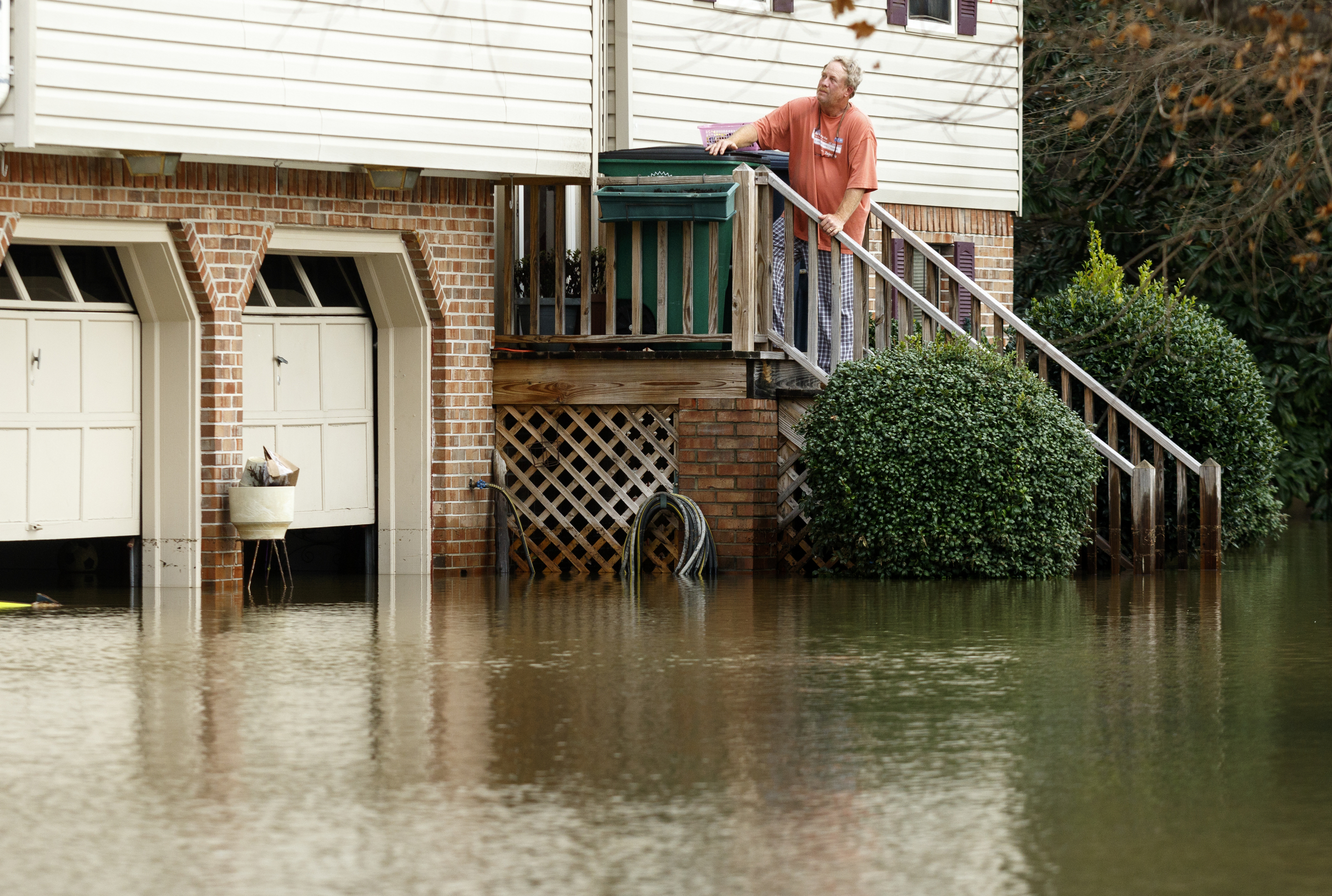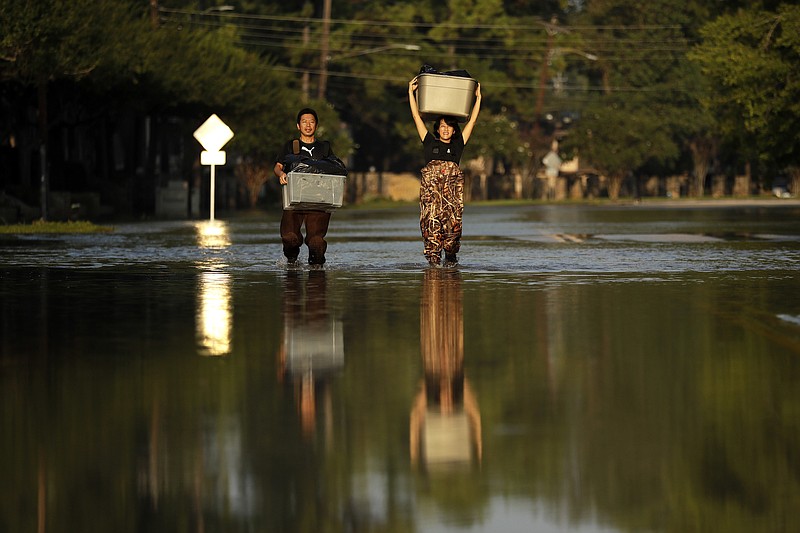 Rex Wheeler, who spent Saturday moving belongings above the floodwaters in his basement, looks out from his front porch after Christmas day rainfall brought South Chickamauga Creek to a flood stage of about 26.5 feet on Sunday, Dec. 27, 2015, in East Ridge, Tenn. Major flood stage classification for the creek is 27 feet.
Rex Wheeler, who spent Saturday moving belongings above the floodwaters in his basement, looks out from his front porch after Christmas day rainfall brought South Chickamauga Creek to a flood stage of about 26.5 feet on Sunday, Dec. 27, 2015, in East Ridge, Tenn. Major flood stage classification for the creek is 27 feet.Hurricanes may not be a major concern in the landlocked corner where Tennessee, Georgia and Alabama meet, but the tri-state area is by no means immune to weather catastrophes.
With Houston still waterlogged from Hurricane Harvey and Florida bracing for a similar deluge from Hurricane Irma, it's time for a homeowner's checklist on how to prepare if flooding is imminent.
Mekka Parrish, manager of PR and media relations for Chattanooga Gas Co., says knowing the guidelines and "having a plan" can help area residents in "making the necessary preparations for severe weather."
Here are tips supplied by Parrish for Chattanooga Gas Co. and by EPB Safety Manager Tim Hoback when a weather emergency is threatening your home.
Chattanooga Gas Co. recommendations
Meter Safety
-Customers are encouraged to know how to locate their natural gas meter.
-Following a weather emergency, ensure the natural gas meter is visible and the area surrounding the meter is free of trash and debris. Mechanical equipment used after the storm to clean up a location may damage the meter if it is hidden.
-If a natural gas meter is damaged or gas line is exposed, immediately leave the area and call the Chattanooga Gas 24-hour emergency response number at 1-866-643-4170.
Damage Prevention
-Strong winds and saturated grounds could cause trees to become uprooted. Before removing downed trees, customers should dial Tennessee 811 at 8-1-1 or 1-800-351-1111 to have the location of underground utility lines marked, because downed trees could become tangled with the natural gas lines.
Appliance Safety
-Customers are advised to leave their natural gas service on during a hurricane or severe storm. Most gas appliances have safety valves that shut off the flow of gas automatically if the pilot light goes out.
-If flooding occurs at a residence or business and the gas appliances are under water, customers are advised not to operate their appliances until a safety inspection is conducted.
Natural Gas Generators
-During a power outage, natural gas generators provide continuous fuel supply from an existing natural gas line. While these units are available in a range of sizes to meet various energy needs, customers are encouraged to contact Chattanooga Gas to determine whether their service line meets load requirements for the generator's safe and efficient operation.
-Keep natural gas generators outside in a vented space. Never run generators in a garage, carport, basement, crawlspace or other enclosed or partially enclosed area, even with ventilation.
Detecting Gas Leaks
-If customers smell the rotten egg odor that is often associated with natural gas, they should immediately leave the affected area and call the Chattanooga Gas 24-hour emergency response line at 1-866-643-4170 from a safe location.
-Residents should never try to identify the source of a leak themselves.
-If the odor of gas is present, do not use a telephone or cellular phone, turn light switches on or off, operate any appliance or do anything that might cause a spark, such as lighting a match.
EPB recommendations
Before Flooding Conditions Exist
-Make sure the electrical circuit breakers or fuses are clearly marked for each area of your home or business.
-If high water is approaching and the floor is dry, turn off the electricity at the main circuit breaker or fuse box.
-Unplug appliances - but again, only if you don't have to stand in water. If possible, you should move larger appliances such as washing machines to a higher floor or place them on concrete blocks.
-Farmers who have electric irrigation pumps should contact EPB or their local public power provider to be disconnected if they are threatened by flood waters.
-If you use a generator, only connect the equipment you want to power directly to the outlets on the generator. Do not connect a generator to a home's electrical system. Consult a licensed electrician.
During flood conditions
-Don't go into any room or basement if water is covering appliance cords that are plugged in or if water has reached the wall outlets.
-Don't enter a room if you hear popping or buzzing or if you see sparks.
-If you see downed power lines, call EPB or your local public power provider. Be careful around downed tree limbs. They can conduct electricity from wet or broken power lines.
-Remain a safe distance from all ground-level electrical boxes to avoid an electrical hazard.
-Before entering a flooded building or basement, make certain the electricity is off. If it hasn't been turned off, or if you're not sure, call EPB or your local public power provider. Don't go in!
After flood waters have receded
-If the electrical panel has been covered by water, the resident or business should contact an electrician to determine the safety of the unit.
-If the panel has not been covered by water, call EPB or the local public power provider. This is a safety issue for both the resident and the utility crew.
-If your furnace was flooded, have it inspected by a qualified HVAC technician.
